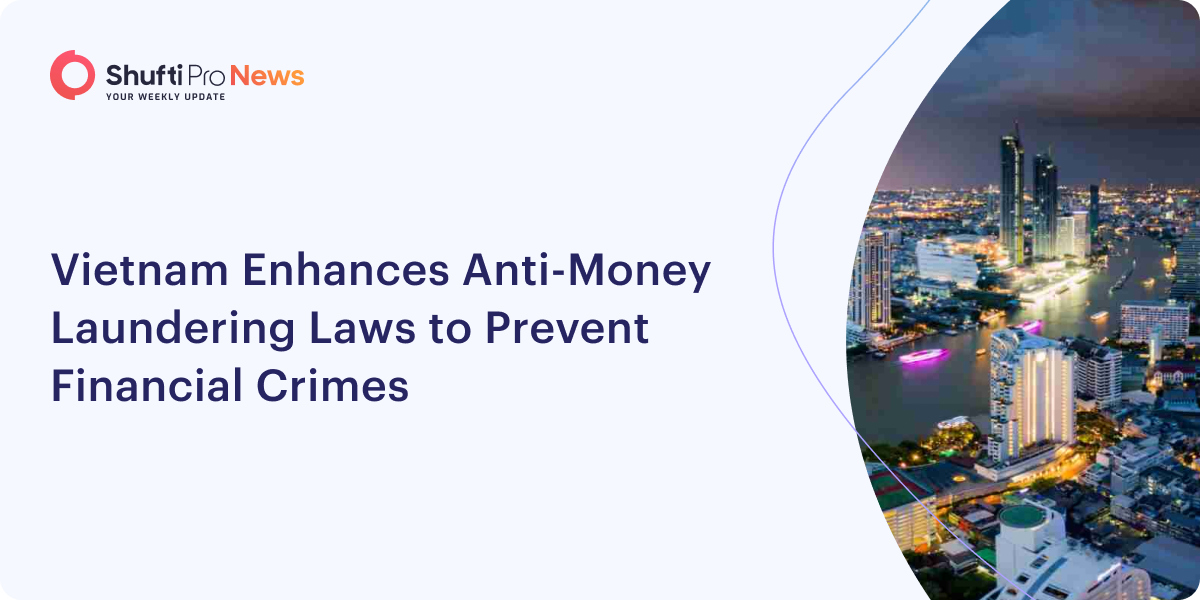Vietnam Enhances Anti-Money Laundering Laws to Prevent Financial Crimes

Vietnam regulatory departments are redefining their AML compliance measures to supervise cryptocurrency and prevent digital assets from financial crimes.
Vietnam is working to implement rigorous regulations in the fintech industry to enhance the security of digital currency and become a part of the global rise in virtual assets. The country has a significant role in increasing cryptocurrency and the latest technologies. It is passionately crafting a strict legal pathway to verify cryptocurrency platforms. Previously, Vietnam approved the AML law, which came into effect in March; this urged the State Bank of Vietnam (SBV) and the government to conduct strict measures and deployment against the financial institutes to sync with international obligations.
General Secretary of the Vietnam Banking Association (VNBA), Nguyen Quoc Hung, warned at a seminar on regulations on anti-money laundering in cryptocurrency transactions. The landscape of digital currency and transaction platforms are still not refined by the ongoing AML measures, showing advanced and complicated challenges for business verifications, mainly when criminals penetrate the system with sophisticated methods. Cryptocurrency transactions are most convenient for criminals to hide illicit activities. The General Secretary stated in the seminar, “Vietnam has yet to recognise cryptocurrency, but transactions still occur in reality. So, how do we prevent money laundering? It is essential to recommend regulatory agencies to complete legal regulations to restrict and prevent criminal behaviour.”
Senior advisor of the Vietnam Blockchain Association (VBA), Hung Tran, had stated in defence of cryptocurrency that digital assets open a new door of technology for various sectors. He stated, “Notwithstanding, this robust growth brings not only special economic and social benefits but also creates invisible existences and challenges in management, especially for cross-border money laundering activities.” An analysis from September 2022 shows that asset tokenisation could rise to $16 trillion, or 10% of global GDP, by 2030, and 5-10% of all assets will be tokenized. Tran added, “With the advent of blockchain tech, there is a risk of increasing financial crimes and sophisticated money laundering using high technology. In Vietnam, due to the lack of a specific legal framework and quality human resources to manage and control cryptocurrency, digital assets, the general landscape is still very limited.”
Voice chairman of the VBA, Nguyen Doan Hung, claimed the initiative of the regulatory association to implement AML laws is pivotal, but a procedure to deploy these derivatives is inadequate, highlighting the importance of the urgent legal framework and strategies for the crypto sector to monitor this domain. He stated, “Money laundering is often associated with illegal arms trading, terrorism financing, human trafficking, corruption, insider trading, gambling, or large-scale, organised cross-border prostitution rings. Therefore, anti-money laundering work has been a priority for all countries around the world, including Vietnam, for quite some time.”
Suggested Reads:
VIETNAM COLLABORATES WITH UK TO ENHANCE AML LAW ENFORCEMENT
VIETNAM’S NEW LEGISLATION ON E-TRANSACTIONS WILL TAKE EFFECT ON JULY 2024
VIETNAM’S DEPUTY PM APPROVES NATIONAL ACTION PLAN FOR THE PREVENTION OF FINANCIAL CRIME











